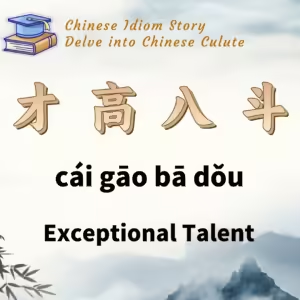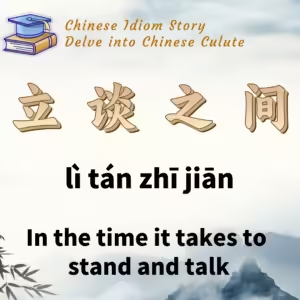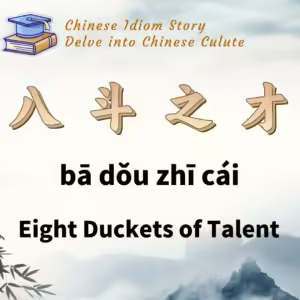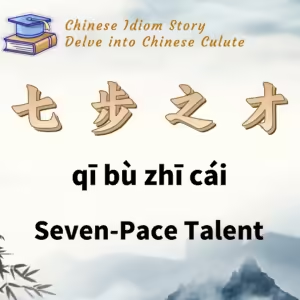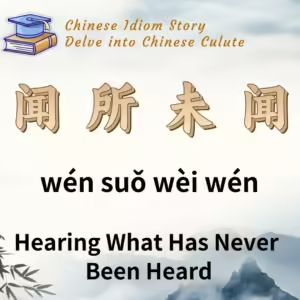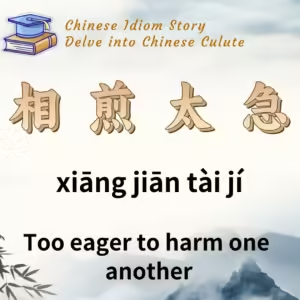
Chinese Idiom: 相煎太急 (Xiang Jian Tai Ji)
English Translation: Too eager to harm one another
pīn yīn: xiāng jiān tài jí
Idiom Meaning: This idiom refers to internal discord or the phenomenon of infighting within a group, especially among close relations, leading to self-destruction.
Historical Source: The idiom is derived from the poem “Seven Steps” (七步诗) written by Cao Zhi (曹植), the son of Cao Cao during the Three Kingdoms period.
Idiom Story:
Cao Zhi, known for his intelligence and talent from a young age, was a favored son of the warlord Cao Cao. By the age of ten, he was already well-versed in poetry and literature. In 210 AD, Cao Cao constructed the Copper Sparrow Platform in Ye City for military purposes, inviting his sons to compose poems in front of officials. Cao Zhi quickly produced an exceptional work, showcasing his poetic skill.
After Cao Cao’s death in 220 AD, his eldest son, Cao Pi, ascended the throne. Fearing his brother’s talent and potential ambition, Cao Pi summoned Cao Zhi and challenged him to write a poem within the span of ten steps. The topic was a painting of a cow that had fallen into a well. Cao Zhi swiftly composed a poem that cleverly avoided direct references to the theme, impressing those present.
However, Cao Pi continued to press him, insisting he create a poem in just seven steps, using the theme of brotherhood but prohibiting the word “brother.” In response, Cao Zhi composed the poignant lines:
煮豆持作羹,漉菽以为汁。
其在釜下燃,豆在釜中泣。
本是同根生,相煎何太急。
The translation of these lines is:
“Boiling beans to make soup, filtering the dregs for juice.
Under the cauldron they burn, while the beans weep in the pot.
We are of the same root, why must we hasten to harm each other?”
In this poem, Cao Zhi uses the metaphor of boiling beans to express the pain of familial conflict and betrayal, emphasizing that they come from the same origin but are driven to cause each other suffering. The underlying message resonates deeply with the emotional struggle and desperation of being at odds with one’s own kin.
Although Cao Pi felt a tinge of shame after hearing the poem, he still imprisoned Cao Zhi. The latter, unwilling to live in idleness, longed to serve the state, especially as war erupted between Wei and Wu in 222 AD. He approached Cao Pi with a petition to join the fight, expressing his desire to contribute to the nation. However, Cao Pi, harboring suspicion, denied his request.
The phrase “相煎太急” has since become an idiom used to highlight the destructive tendencies of infighting among those who should be united, particularly within families or close-knit groups.

